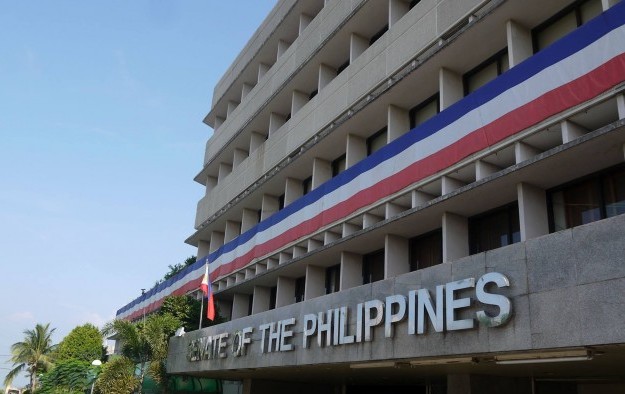Philippines AML bill covering casinos nears final vote
May 26, 2017 Newsdesk Latest News, Philippines, Top of the deck

The Philippine Senate has moved closer to including casinos in the list of institutions covered by the country’s Anti-Money Laundering Act, after it approved on Wednesday the second reading of Senate Bill 1468.
The Senate is expected to pass the bill on a third and final reading next week, in order to have it enacted into law by June, reported the Manilla Bulletin newspaper.
Senate Bill 1468 proposes to add casinos – namely land-based, Internet and ship-based casinos – to the list of bodies that are required to report suspicious transactions under the Philippines’ Anti-Money Laundering Act.
The bill also suggests the inclusion in the Anti-Money Laundering Act of “chipwashing and junket operators”, defined in the bill as “any person who brings a person, a group of persons, or junket players in the casino premises to participate in the gaming operations”. The casino regulatory manual of the country’s casino regulator, the Philippine Amusement and Gaming Corp (Pagcor), makes it clear that “chipwashing and junket operators” are deemed to be third-party commercial actors in the gaming sector.
Senate Bill 1468 also requires land-based, Internet and ship-based casinos to report to the country’s Anti-Money Laundering Council (AMLC) what is referred to as “covered transactions”. Casinos must report any single casino cash transaction that involves an amount of more than PHP5 million (US$100,000) or its equivalent in any other currency, according to the bill.
Senator Francis Escudero, who sponsored the bill, said Senate Bill 1468 should be enacted into law before a June deadline set by the Asia/Pacific Group on Money Laundering; otherwise the Philippines faced being blacklisted by that body. Mr Escudero was quoted saying that the blacklist tag would put the country under stringent international financial scrutiny.
The inclusion of casinos in the Philippines’ Anti-Money Laundering Act was also one of the recommendations of the Paris-based Financial Action Task Force (FATF) – a global body responsible for bolstering the fight against worldwide money laundering – in order to avoid the potential blacklisting of that country.
Senate Bill 1468 shall take effect 15 days following its publication. Within 90 days after the bill becoming effective, the AMLC, Pagcor and other government regulatory agencies shall jointly promulgate the supporting rules and regulations to implement the provisions of the revised law, according to the bill.
The Philippines casino industry came under renewed international scrutiny – regarding anti-money laundering controls – when news broke in March 2016 that hackers had allegedly stolen US$81 million from Bangladesh central bank accounts held at the Federal Reserve Bank of New York, with some of that money allegedly finding its way into the Philippines’ casino sector.
In a report in March this year, the U.S. Department of State said the Philippines’ anti-money laundering rules remained sketchy despite the 2016 heist.
Related articles
-
 RGB says ‘unaffected’ by...
RGB says ‘unaffected’ by...Jul 26, 2024
-
 Philippines gives 20k aliens in POGOs...
Philippines gives 20k aliens in POGOs...Jul 25, 2024
More news
-
 Donaco EBITDA up y-o-y to above US$4mln...
Donaco EBITDA up y-o-y to above US$4mln...Jul 26, 2024
-
 HK listed Palasino upgrades Czech...
HK listed Palasino upgrades Czech...Jul 26, 2024
Latest News
Jul 26, 2024
Border-casino operator Donaco International Ltd has achieved a 164.17-percent year-on-year increase in its latest quarterly group earnings before interest, taxation, depreciation and amortisation...Sign up to our FREE Newsletter
 (Click here for more)
(Click here for more)
Pick of the Day
”We’ve got more traction outside of Macau at the moment. But Macau’s going be a bigger focus for us”
David Punter
Regional representative at Konami Australia
Most Popular
 Sheraton brand to exit Londoner Macao, to be Londoner Grand July 25, 2024
Sheraton brand to exit Londoner Macao, to be Londoner Grand July 25, 2024  Macau regulator probes unlicensed gaming agents July 24, 2024
Macau regulator probes unlicensed gaming agents July 24, 2024  Philippines gives 20k aliens in POGOs 60 days to leave July 25, 2024
Philippines gives 20k aliens in POGOs 60 days to leave July 25, 2024  Philippines-listed DigiPlus says not affected by POGO ban July 24, 2024
Philippines-listed DigiPlus says not affected by POGO ban July 24, 2024  Sands China 2Q EBITDA down q-o-q amid low hold, renovation July 25, 2024
Sands China 2Q EBITDA down q-o-q amid low hold, renovation July 25, 2024






